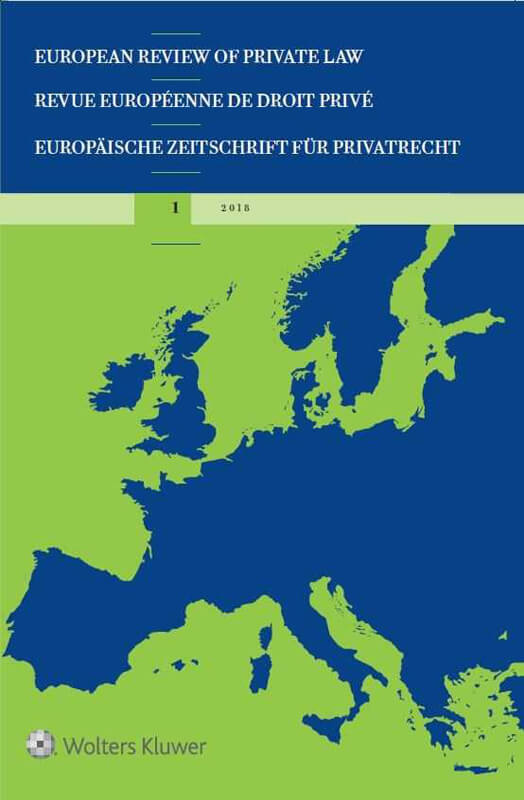Home > All journals > European Review of Private Law > 26(6) >

$25.00 - Rental (PDF) *
$49.00 - Article (PDF) *
Louis-Daniel Muka Tshibende
European Review of Private Law
Volume 26, Issue 6 (2018) pp. 871 – 883
https://doi.org/10.54648/erpl2018059
Abstract
Abstract: Considering that the internationality of a contract as well as its national character opens up opportunities for the contracting parties, particularly in the domains of dispute settlement mechanisms and applicable Law that they can eventually opt for, the present contribution analyses legal issues resulting from the fact that parties are nevertheless submitted to an obligation to comply with mandatory provisions and public policy rules depending on the location of some key elements of their agreement. This applies, even though it is about smart contracts and blockchain technologies. This article focuses on property and security rights issues (: defective title, informational defects and viruses … ) in the context of the Civil Law tradition.
Résumé: Considérant que le caractère international d’un contrat, aussi bien que son caractère national, ouvrent des opportunités pour les parties contractantes, particulièrement dans les domaines de mécanismes de résolution des litiges et de loi applicable qu’elles peuvent éventuellement choisir, la présente contribution analyse les questions juridiques résultant du fait que des parties sont néanmoins tenues de respecter des dispositions obligatoires et de règles de politique d’intérêt général dépendant du lieu de certains éléments-clés de leur contrat. Ceci s’applique même s’il s’agit de contrats intelligents et de technologies de la blockchain. Le présent article se concentre sur des questions de droits de propriété et de sécurité (: défectuosité, défauts informationnels et virus … ) dans le contexte du droit civil traditionnel.
Extract
